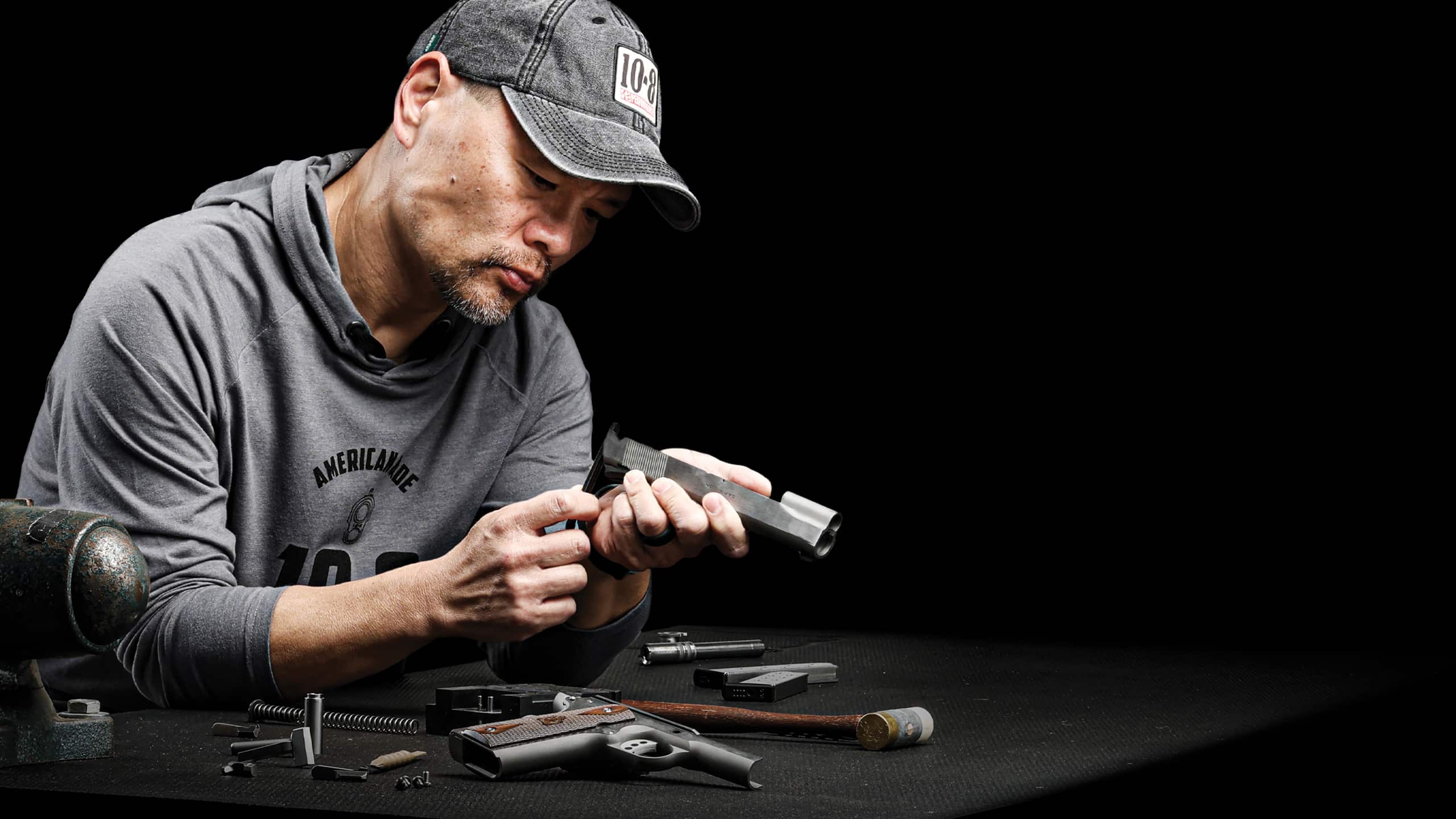Love guns and looking for a career that works with them? Plenty of careers involve firearms as a core part of the work. Some require carrying a gun daily. Others focus on making, fixing, or teaching about them. The range is wider than most people think. Let’s take a look at some of what’s out there.
Law Enforcement and Security Roles
Police officers carry firearms as standard equipment. Local cops, state troopers, federal agents — they all qualify regularly and use guns as tools for public safety. The training never stops. Departments require officers to maintain proficiency through scheduled range time and periodic qualification courses.
Federal law enforcement positions include FBI agents, DEA agents, U.S. Marshals, and Secret Service personnel. These roles demand extensive firearms training beyond basic police academy requirements. Border Patrol agents can work in remote areas where firearms proficiency matters even more.

Security contractors and armed security guards protect people, property, and assets. High-level executive protection specialists earn substantial salaries. Armored car personnel transport valuables while armed. Private military contractors work overseas in conflict zones — these positions pay well but carry serious risks.
Military Occupations
Every military branch uses firearms. Infantry soldiers make rifles their primary tool. They train constantly on rifles, machine guns, grenade launchers, and sidearms. Combat roles across all services — Army, Marines, Navy, Air Force, Coast Guard, Space Force — involve weapons training to varying degrees.
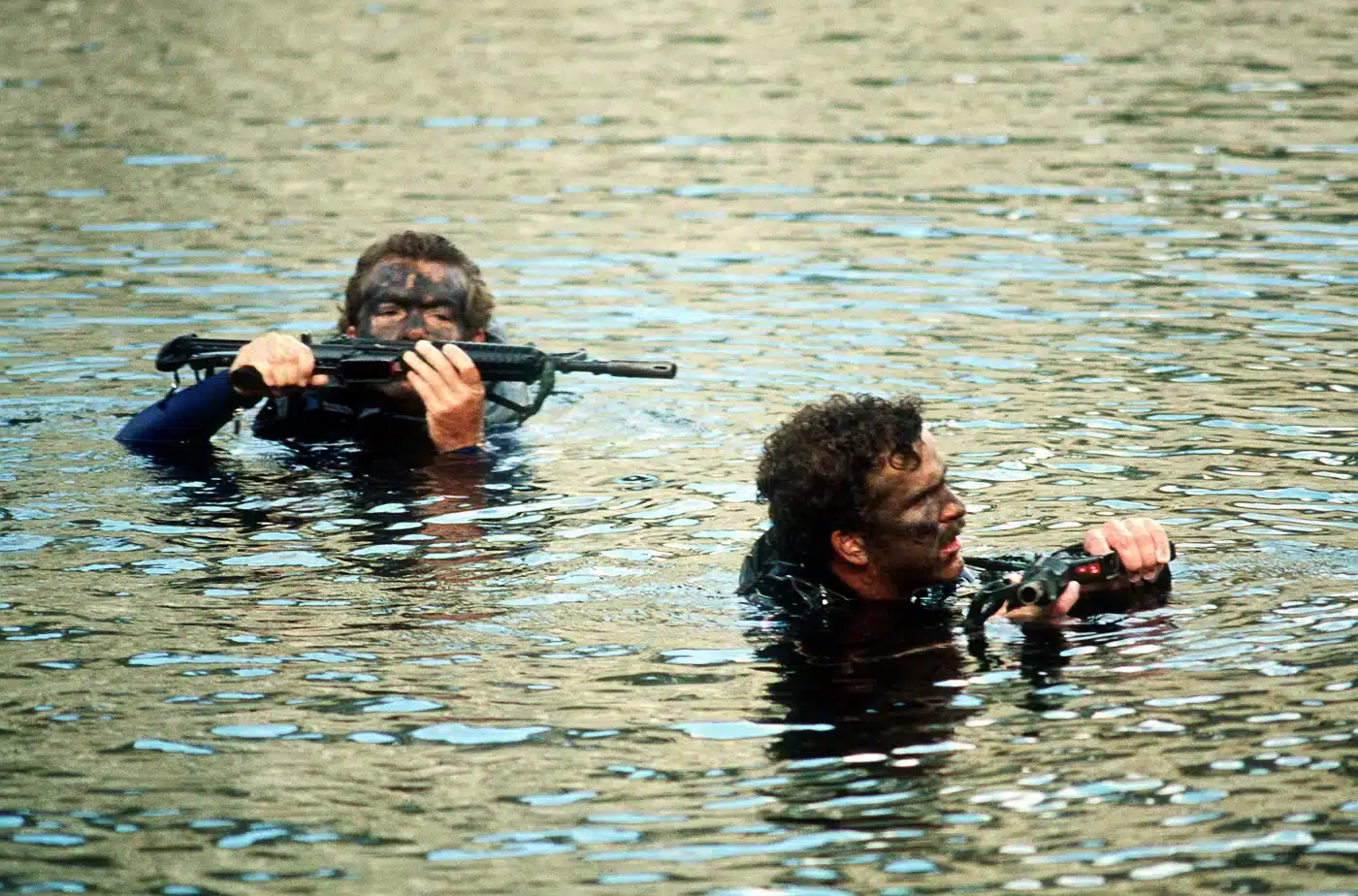
Military police carry firearms as part of their duties to enforce law and order and provide base security. Special operations forces like Navy SEALs, Army Rangers, and Air Force Pararescuemen (PJs) rain extensively with diverse weapon systems. Even support roles receive basic firearms instruction during initial training.
Firearms Industry Careers
Gunsmiths repair, modify, and customize firearms. Some work in shops serving local customers. Others specialize in competition guns or historical restorations. The work combines mechanical skill with detailed knowledge of how different firearms function. The Armory Life has interviewed a number of gunsmiths including Hilton Yam and Ron Smith.
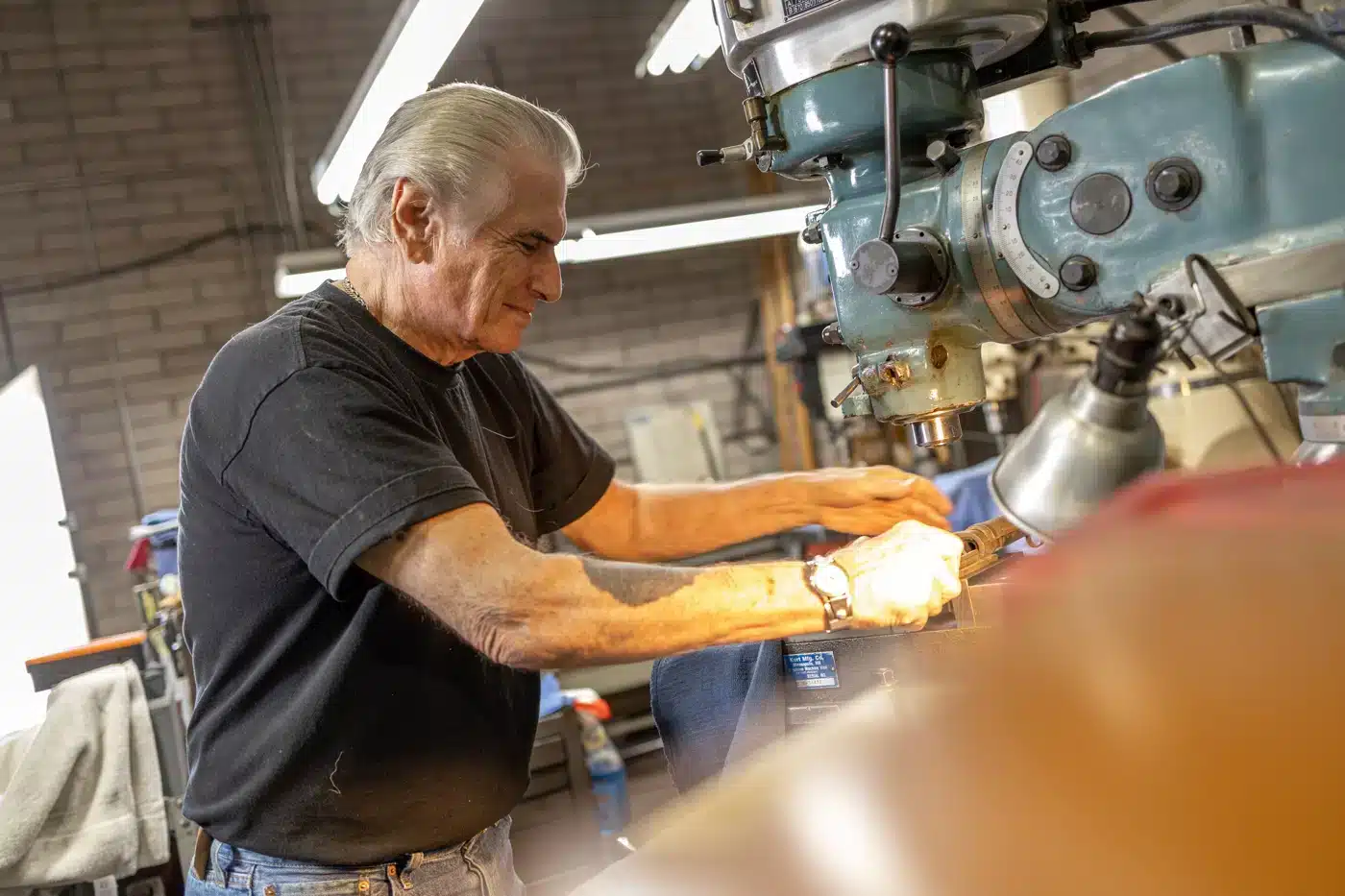
Firearms engineers design new weapons and ammunition. These positions require engineering degrees and deep understanding of ballistics, materials science, and manufacturing processes. Check out our interview of Dave Williams, the head of Research and Development for Springfield Armory.
Manufacturing jobs at firearms plants involve machining, assembly, quality control, and testing. Companies like Springfield Armory employ hundreds of workers who build guns and components.
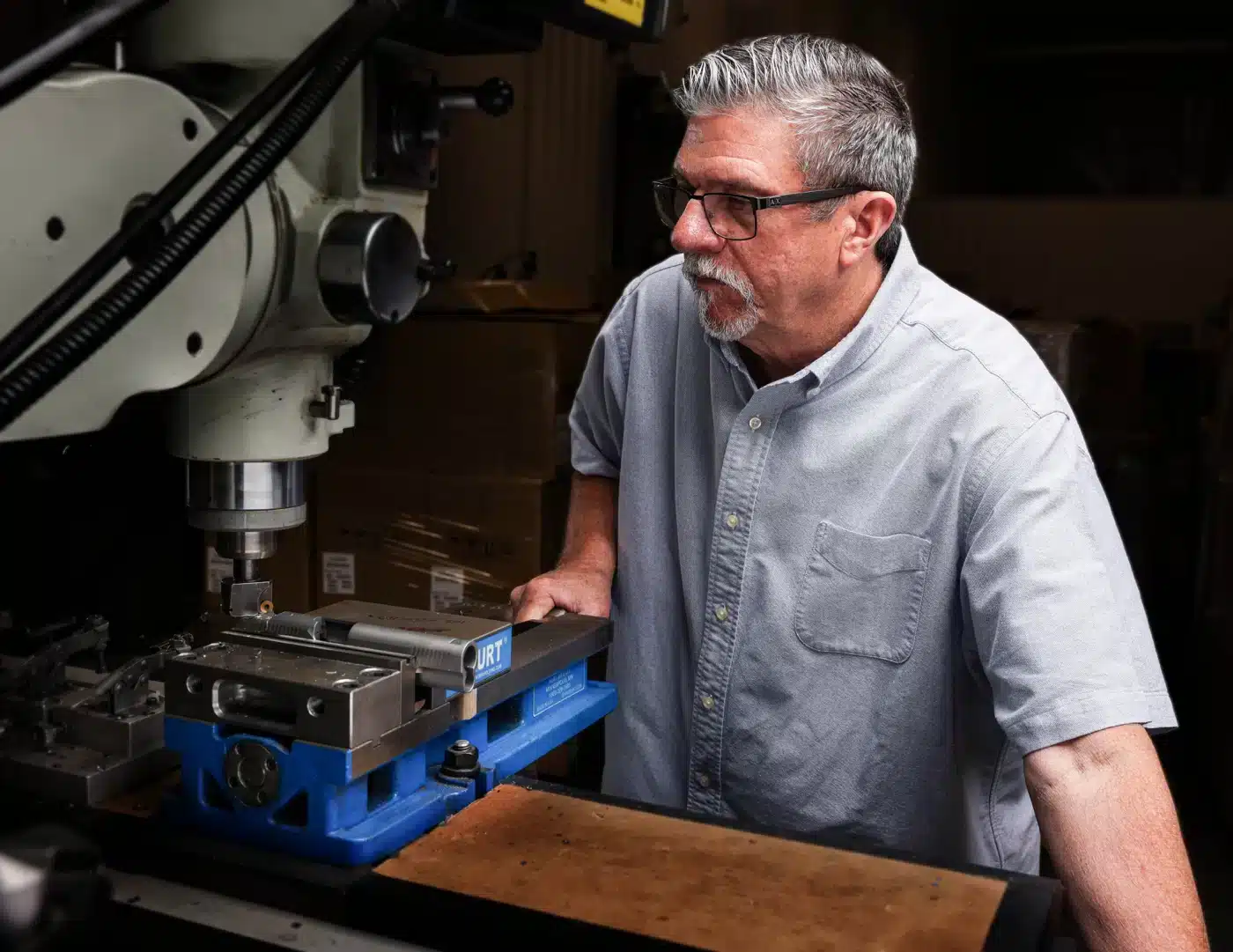
Ammunition manufacturers need chemists, engineers, and production workers. Federal, Winchester, Hornady, and other companies produce billions of rounds annually. Quality control technicians test ammunition for safety and performance.
Instruction and Training
Firearms instructors teach shooting skills to civilians, law enforcement, and military personnel. Some work at public ranges. Others run private training companies. The best instructors hold certifications from organizations like the NRA or professional associations.
Range safety officers oversee shooting ranges to prevent accidents. They enforce rules, provide guidance, and respond to emergencies. Many ranges require RSO certification before hiring.
Competitive shooting coaches work with athletes training for matches. USPSA, IDPA, 3-Gun, and Olympic shooting disciplines all need skilled instructors who understand technique and equipment optimization.
Hunting and Wildlife Management
Game wardens enforce hunting regulations while carrying firearms. They patrol remote areas, investigate poaching, and manage wildlife populations. State fish and game departments employ these conservation officers nationwide.
Professional hunters guide clients on expeditions. Safari guides in Africa, bear guides in Alaska, elk guides in Montana — they need expert marksmanship and extensive firearms knowledge. Wildlife control specialists sometimes use firearms to manage problem animals near populated areas.
Retail and Sales
Gun store employees sell firearms, ammunition, and accessories. They must understand federal and state laws, complete background check paperwork, and answer customer questions about different models and calibers. Many stores prefer hiring staff with personal shooting experience. High end gun shops like Range USA frequently need knowledgeable shooters to work with customers on gun purchases.
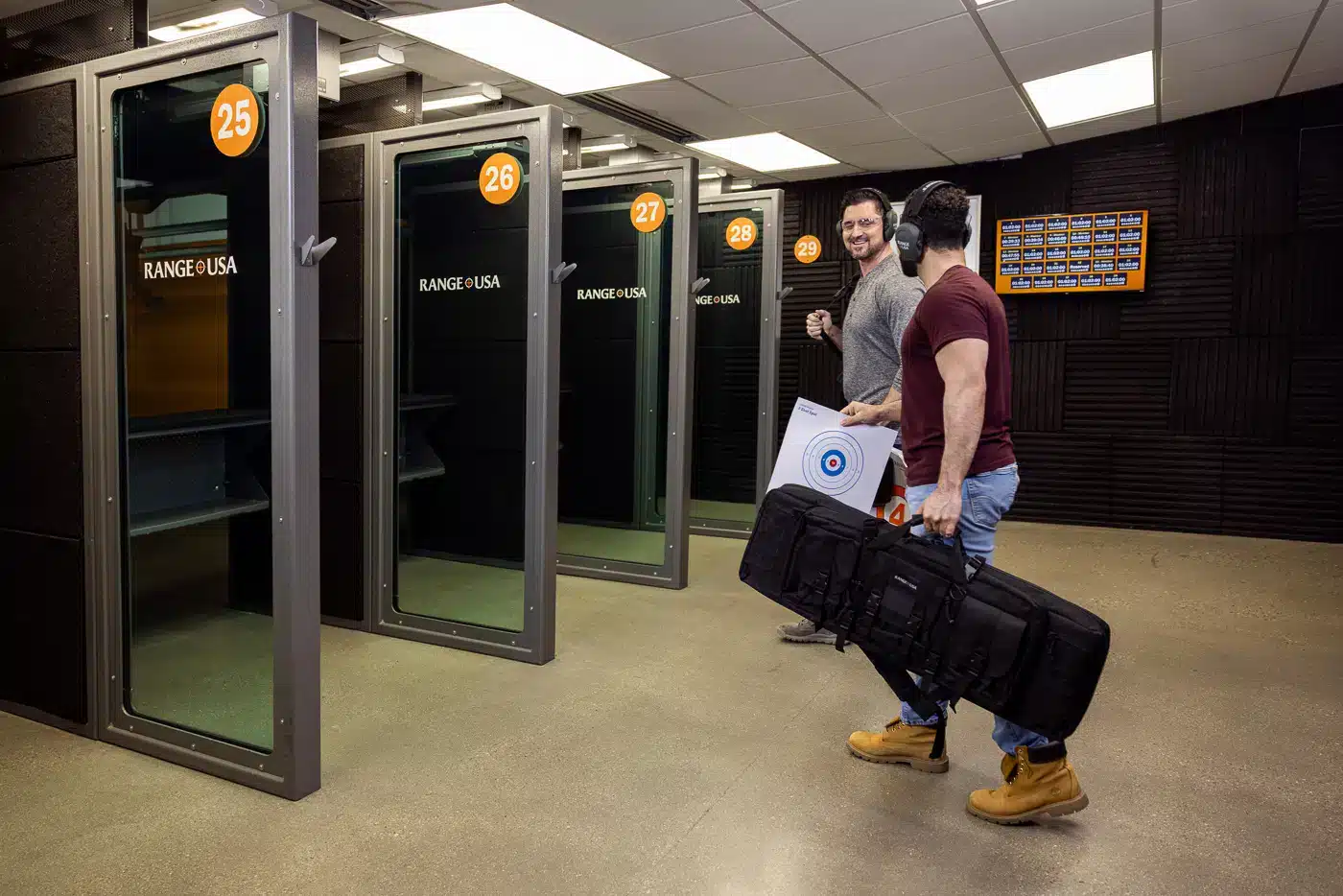
Sales representatives for firearms manufacturers travel to dealers and distributors. They demonstrate new products, provide training, and build relationships with retailers. These positions combine product knowledge with sales ability.
Entertainment and Media
Armorers work on film and television sets. They provide period-correct firearms, ensure actor safety, and choreograph action sequences. The job demands historical knowledge and strict safety protocols. Demand for qualified armorers has increased as productions use more practical effects. Read our article about ISS Props to learn more about this niche employment.
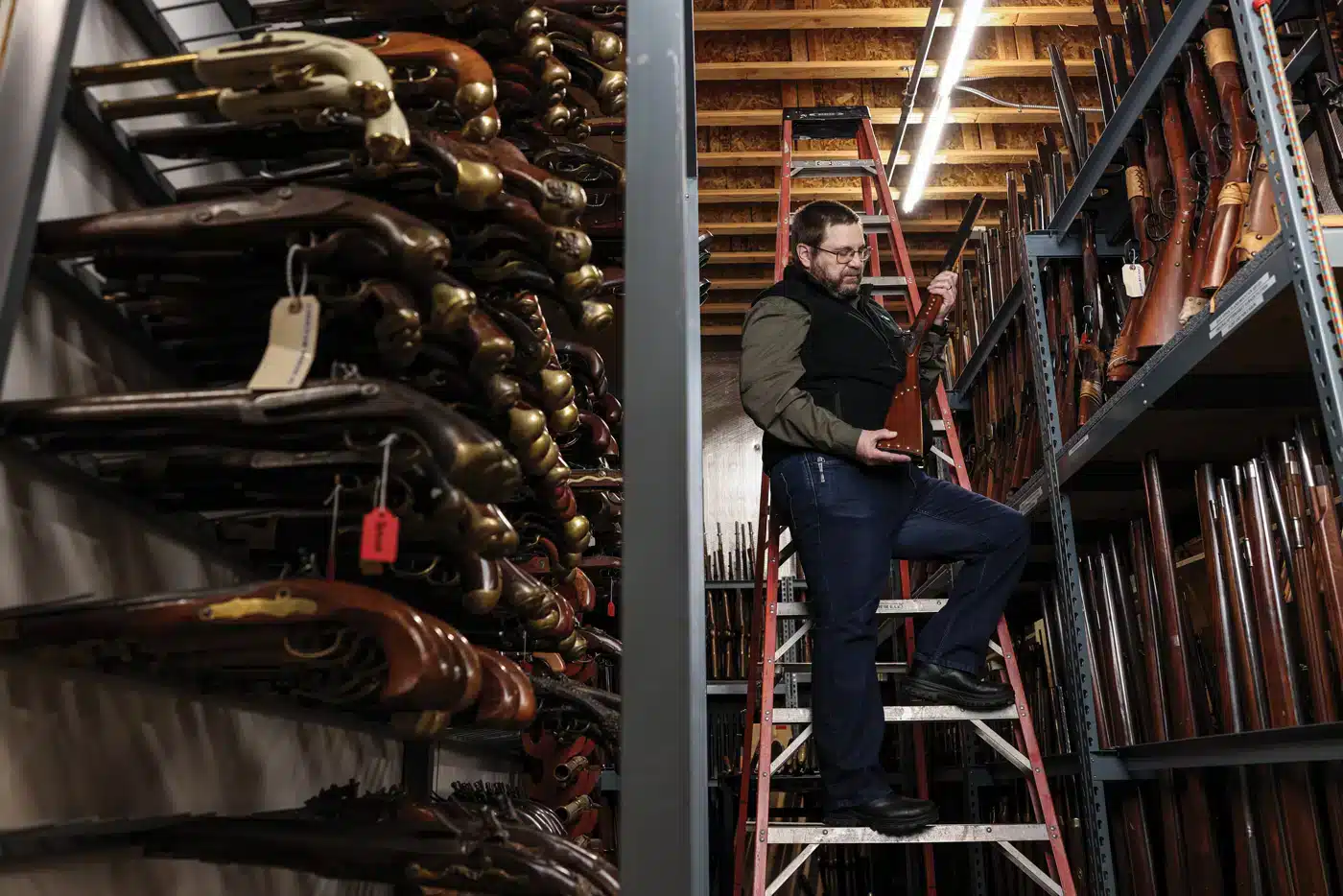
Firearms consultants advise writers, directors, and video game developers on realistic weapon portrayal. They correct scripts, demonstrate proper handling, and help create authentic combat scenes. The Armory Life’s own Dale Dye drastically changed how the movie industry approaches military movies through his role as an advisor.
Competitive shooters sometimes earn income through sponsorships and match winnings. Top performers in practical shooting sports can make this a career, though most supplement with instruction or other firearms-related work. Springfield’s Rob Leatham and Julie Golob are two amazing shooters that have made their careers in competitive shooting.
Research and Testing
Ballistics experts analyze firearms evidence for law enforcement. They examine bullets, casings, and gunshot residue. Crime labs employ these specialists to connect weapons to crimes through microscopic analysis and database comparisons.
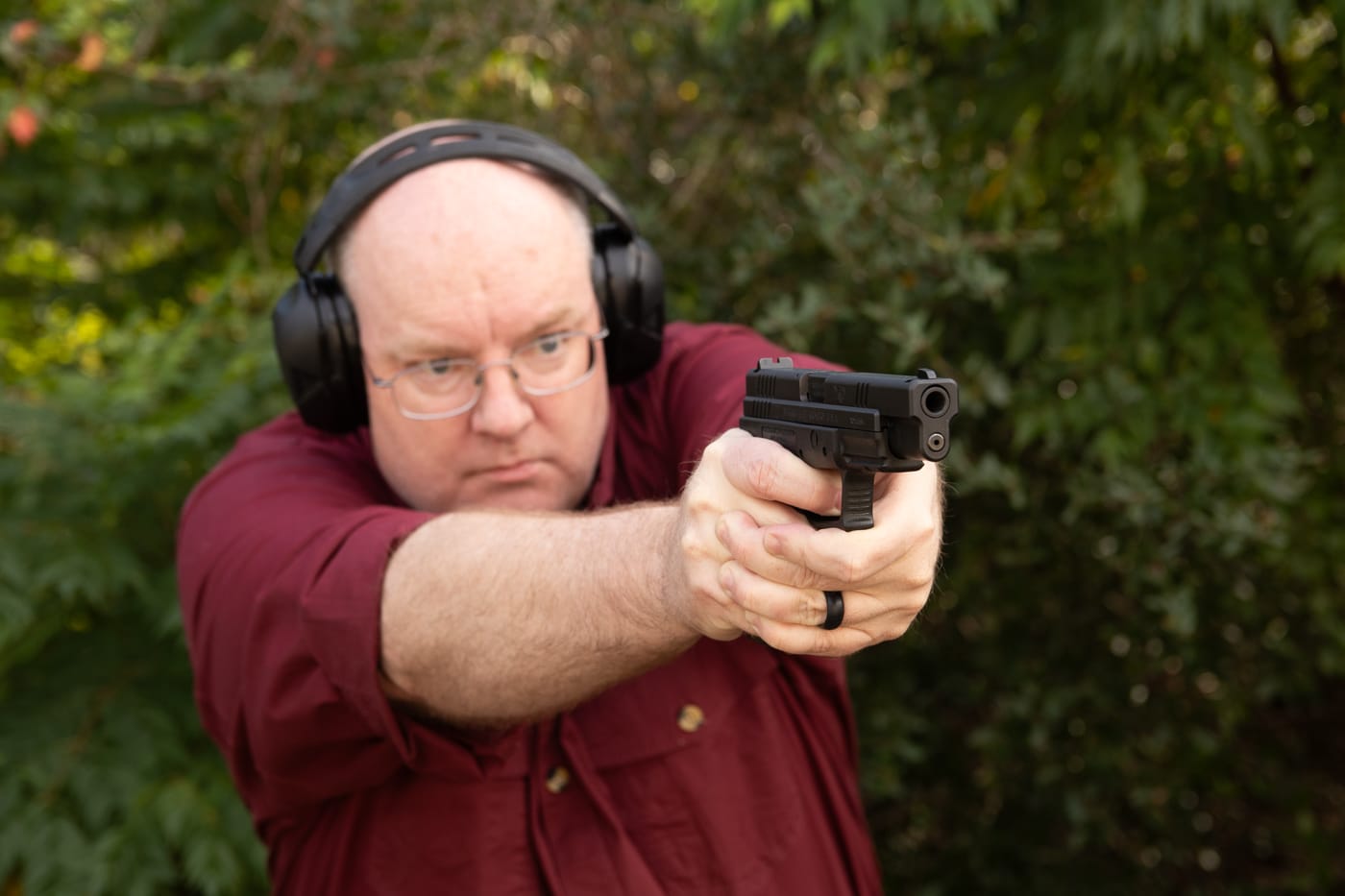
Firearms examiners test weapons for manufacturers, government agencies, and publications. They measure velocity, accuracy, reliability, and durability. Publications like The Armory Life and Guns & Ammo employ testers who evaluate products for readers.
Forensic consultants provide expert testimony in criminal and civil cases involving firearms. They reconstruct shooting incidents, analyze evidence, and explain technical details to juries. This work requires extensive credentials and courtroom experience.
Specialized Niches
Historical firearms experts appraise antique weapons. They authenticate pieces, assess condition, and provide valuations for collectors and museums. This requires deep knowledge of firearms history and manufacturing.
Custom knife and gunmakers craft high-end pieces for collectors. These artisans combine metalworking skills with artistic design. Some focus on historical reproductions while others create modern custom pieces.
Firearms patent attorneys help inventors protect designs and innovations. They need both legal training and technical understanding of firearms mechanisms.
The firearms industry connects to dozens of career paths. Some jobs center entirely on guns while others incorporate firearms as one tool among many. Training requirements vary from basic safety courses to advanced degrees. Pay ranges from hourly retail wages to six-figure specialized positions. Anyone considering these careers should understand relevant laws, maintain safety as a priority, and pursue appropriate training and certifications. The work suits people who combine technical skill with responsibility and judgment.
Editor’s Note: Please be sure to check out The Armory Life Forum, where you can comment about our daily articles, as well as just talk guns and gear. Click the “Go To Forum Thread” link below to jump in!


